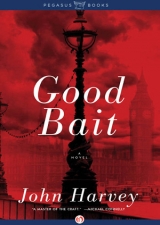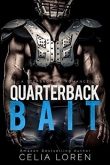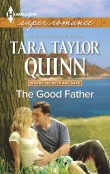
Текст книги "Good Bait"
Автор книги: John Harvey
Жанр:
Триллеры
сообщить о нарушении
Текущая страница: 16 (всего у книги 19 страниц)
48
This time the meeting was in a hotel close to the Westway, a conference room on the eleventh floor. Corporate anonymity. Silent through triple-glazed windows, three lanes of slow-moving traffic eased their way, ghost like, towards the city centre; drivers, whey faced, bored, listening absently to the radio, smoking, illegally using their mobile phones. On the table, jugs of water, glasses, a selection of sweet biscuits, notepads and pens bearing the hotel’s crest and name. At intervals the air conditioner cut in above the radiators’ low hum.
Sterile enough, Karen thought, should it be necessary, to perform an operation.
Burcher.
Cormack.
Alex Williams.
Charlie Frost.
Karen had made her report first, bringing them up to speed on her team’s progress: the links between Dennis Broderick and Gordon Dooley; the evidence that placed Valentyn Horak and two others on their way to Stansted inside the van Broderick had leased at Dooley’s request; Stuart Dyer at the wheel of the second vehicle – Dyer who placed five of Dooley’s known associates at the place where Horak and two others were tortured and probably killed.
‘No chance he’s going to recant?’ Cormack asked. ‘This witness?’
‘Always a chance,’ Karen said. ‘What I’d be more concerned about is someone getting to him. Persuading him to change his mind or shutting him up for good.’
‘We can cotton-wool him, surely,’ Alex Williams said. ‘Protective custody.’
‘Not something we’ve been conspicuously good at recently,’ Cormack chipped in.
‘We won’t lose him,’ Burcher said. ‘Lessons learned.’
‘The sooner, then, maybe,’ Karen said, ‘we pick up Arthurs and the rest, the better.’
‘Let’s not lose sight, though, of the bigger picture,’ Burcher said. ‘What we still don’t have, as far as I can see, is anything watertight that ties Dooley in to all this – Broderick’s assertion, aside, that it was Dooley talked him into leasing the van in the first place.’
‘Must count for something,’ Karen said.
‘Not a bloody lot.’
She flashed him a look.
‘There has been one other development,’ Cormack put in swiftly, ‘might prove useful. By dint of promising to revise his immigration status, we’ve persuaded one of the Chinese workers picked up at one of the raided cannabis farms to start cooperating, remembering a few faces. So far we’ve come up with Mike Carter, wielding a machete. And Carter’s links back to Gordon Dooley are, I think, pretty well documented.’
‘It’s something,’ Burcher said. ‘Still not enough.’
‘I don’t know,’ Alex Williams said. ‘Maybe Karen’s right. Lift Arthurs, Carter and the others now. If they think there’s mileage to be gained from shopping Dooley, that might just give us what we need. It could even panic Dooley himself into some kind of false move. Leave himself open.’
‘From our point of view there’s one big risk in going in too soon,’ Charlie Frost said, speaking for the first time. ‘SOCA’s main interest here, as you know, is at the money-laundering end of things. And as you also, I think, know, one of our principal targets, Anton Kosach, has – or, rather, had – links with Valentyn Horak which were starting to become more clearly defined at the time of Horak’s unfortunate demise. Quite large amounts which were being paid into one of Kosach’s subsidiaries, from where it would be moved around offshore, washed through a couple of shell companies and thence …’
A smile came to Karen’s face: she liked the thence.
‘… and thence to a numbered but otherwise anonymous account in the Caymans-’
‘Or Jersey,’ Alex Williams suggested.
‘Or Jersey. Either way, there’s some clear evidence that Dooley, after successfully moving in on Horak’s operations, has been in contact through intermediaries with Kosach, in order to move the extra money he’s been accumulating out of the country.’
Capitalism, Karen thought, such a wonderful thing.
‘Some evidence,’ Frost concluded, ‘but not quite enough.’
‘How much longer do you need?’ Burcher asked.
‘How much can I have?’
‘I don’t know.’ Burcher threw up his hands. ‘Warren? What do you think?’
‘Well, everything we know suggests Kosach’s a major player. And not just money laundering. His hands are dirtier than that. People trafficking. Prostitution. It would be great to bring him down. But I can see there’s a risk. Delay too long and we could lose everything. The whole shooting match.’
Burcher massaged his scalp. Thought. Waited. Thought some more.
‘All right, the way I suggest we proceed is this. Karen, your team, with some assistance, keep Dooley’s thugs under surveillance. Warren, you look to Dooley himself. This to give Charlie as reasonable a time to get the evidence as he needs – and no use SOCA being timid about this, Charlie, we’re talking days not fucking weeks – and the minute it seems as if Dooley or anyone else we’ve got tabs on shows signs of panic and starts to run, we bring the whole lot in at a gallop. No exceptions.’
He looked round the table.
‘All agreed?’
They were agreed.
Karen was hoping to catch Alex Williams on the way out, but Burcher made his own claim. ‘Alex, a few minutes of your time?’
The door closed behind them and Karen walked on to where Cormack and Charlie Frost were waiting, midway along the corridor, for the lift.
49
Cordon’s left eye still looked as if he’d walked into a door just a few days before; either that or said the wrong thing to the wrong man in the wrong bar. More than enough of those around, as the previous night’s drinking with Kiley had proved. That great barn of a place on the corner where they showed the Gaelic football amongst them. Cordon had lost his footing at one point, his balance still not being what it was, banged his sore ribs against the end of the bar and let out a shout louder than the one that had gone up when Mayo scored the winning goal in the last minutes against Sligo at Quigabar.
Jane had been with them early on, but, in deference to what was to come, had made her excuses and left them to it. A shame, Cordon had thought. A nice girl, though she’d not have thanked him for calling her that; a pleasant woman, attractive, intelligent, both feet firmly on the ground.
What was it, he wondered, that had stopped him getting hooked up with someone like that, instead of the flotsam that, since the implosion of his marriage, had formed the basis of what he might have jokingly called his love life. Primary schoolteachers of the West Country, where had they all been when he needed them? Busy, Cordon assumed, filling in assessment forms, looking the other way.
Of course, the job hadn’t helped. By and large – and there were exceptions – it was a certain cast of woman who was attracted to the idea of going out with a policeman. And, from his experience, your average primary schoolteacher was not amongst them.
He wondered how Kiley did it. Downplaying, somehow, both his past years in the Met and his present role as a private eye in favour of what? A few old footballing scars and tales of his glory days with Stevenage Borough and Charlton Athletic?
Face it, he was jealous.
The nearest he’d got to what might be termed a relationship with a normal woman lacking criminal tendencies or connections had been his marriage to Judith and look what had happened there. A year or so of low-level lust and largely unfulfilled expectations, then the slow disintegration into brittle silences, betrayal and mutual recrimination. Result: a cold divorce, years of winnowing distance, and a son who, as far as he could tell, held them both in more or less complete contempt for the way they’d fucked up their lives and done their level best to do the same to his.
All with or without Philip Larkin’s blessing.
And if his future lay with the Letitias of this world, God help him.
And them.
Letitia, he wondered where she was now. What had happened? If, as he assumed, those who had taken her had returned her whence she had fled, what forgiveness, if any, might she have found in Anton Kosach’s arms? What forms of retribution might have been taken?
And Danny? Danya?
The bright smile on the boy’s hopeful face snagged for a moment on his memory and, best as he could, he brushed it away.
Don’t make him too fond …
Yes, well, like a lot of things, easier said than done.
He checked his watch. Already twenty past one. Back by twelve, Kiley had said, twelve thirty latest. A meeting with the local solicitor he sometimes did investigative work for which must have gone on longer than intended. Been parlayed into lunch, perhaps.
A flurry of voices drew Cordon to the window. Kids from the local comprehensive pushing and shoving, blocking the pavement, oblivious to anyone other than themselves. Small knots of them, standing smoking, eating from fast-food containers. One couple pressed up against the window of Sainsbury’s Local, kissing, tonguing, his hand inside her top and no one caring.
Fifteen, sixteen – in Cordon’s life, a long time ago. More than the sum of years.
He crossed to the stereo, pressed play and jacked up the volume. Amongst the last batch of CDs Kiley had filched from the charity shop below was a Nina Simone. ‘You’ll want to take a look at this,’ Kiley had said. ‘Collecting versions of “Good Bait”, aren’t you?’ At first, he’d thought he was having a laugh, taking the piss, but there it was, ‘Good Bait’, just Simone’s piano, one hand at first, slowly fingering out the tune, as if uncertain, then, after a while, the left hand coming in, and no vocal, no vocal at all. Bit of a sacrilege, probably, Cordon reckoned, but on the whole that was how he preferred her.
After close on a couple of minutes, bass and drums swing in and from there things become more emphatic, more outgoing. The last couple of chords were ringing out as Kiley came through the door, takeout coffees from the corner cafe balanced neatly in one hand.
‘Just time to drink these down, then we’re out of here. Message from Kosach’s brother on my mobile. He’s agreed to meet.’
‘You or me?’
‘Both. Here in London. Some Ukrainian restaurant on the Cali.’
‘Where?’
‘Caledonian Road. Between King’s Cross and the arse end of Holloway.’
The place they were looking for was on a strip of betting shops and second-hand furniture stores, launderettes and dodgy cafes. There was a Closedsign on the door, but not for them. The interior was dark, just a single light showing. Whatever lunchtime rush there’d been had long since disappeared. Taras Kosach sat at a table by the side wall, a glass of wine in front of him, smoking. No one was about to tell him how many by-laws he was breaking.
As Kiley and Cordon approached, he stubbed out the cigarette and, half-rising, offered Kiley his hand. Cordon he glanced at, nothing more.
‘Sit,’ he said.
They sat.
‘You want wine?’
‘Sure,’ Kiley said, ‘why not?’
Without any apparent signal, a waiter appeared with a bottle and two fresh glasses. The wine was dark and thick, like plum brandy.
Taras was somewhere in his forties, Cordon thought, a darkish complexion, darkened further by several days’ stubble, dark eyes; nicotine stains on his fingers, but the nails smoothed into even ovals, manicured. Some kind of balm or cologne that cut through the lingering smell of food from the kitchen.
He was looking at the markings round Cordon’s eye, the residue of swelling.
‘I think, perhaps, you are lucky guy.’
‘You’ll understand,’ Cordon said, ‘if I don’t see it in quite the same way.’
Taras shrugged. ‘What you did, it was very foolish.’
‘Story of my life,’ Cordon said, amiably.
‘Story?’
‘You wanted to see us,’ Kiley said.
Taras lit another cigarette. When he tilted back his head to release the smoke, there was a scar line, thin like a razor cut, across his neck.
‘A message from my brother. For you, especially.’ His eyes on Cordon. ‘What’s done, is done. He holds no …’ he searched for the word, ‘no malice. You understand?’
Cordon said nothing.
‘You understand?’ Taras said again. ‘Is finished.’
He drank some wine.
‘And Letitia?’ Cordon said.
‘What of her?’
‘Exactly.’
‘She is with her family. None of your concern.’
‘You say.’
‘Yes, I say.’
‘I think,’ Kiley said, ‘we would like to be sure of that, that Letitia is okay.’
‘And the boy,’ Cordon put in.
Taras waved a well-groomed hand. ‘Is no longer your business.’
Kiley started to say something, but Cordon cut him off. ‘You listen.’ He jabbed two fingers towards Taras’ chest. ‘I’m the one decides what’s my business. Not you or your brother or anyone else. Understood?’
A small nod from Taras, a retreat.
‘Last I knew of Letitia and Danny,’ Cordon said, ‘they were being taken by men who were dangerous and almost certainly armed, and I doubt would have any scruples about using as much force as they thought was necessary or they could get away with.’
Taras opened his mouth as if about to protest, but Cordon paid no heed.
‘You tell me Letitia’s back in the bosom of her family, well, I want proof. Proof that she and the boy are okay and not being held against their will. Then you can say it’s no longer my business. And not until.’
He eased away, hands gripping the table edge.
Steadying himself, Taras drew deeply on his cigarette and set it carefully down; picked up his lighter and rolled it across his fingers.
‘And if this does not happen as you wish?’
Cordon leaned forward again, his voice lowered to little more than a hiss. ‘Then I’ll move heaven and earth to make your brother’s life an absolute misery. Pull in every police contact, every favour I can. Dig into every nasty little corner I can find. By the time I’ve finished he’ll wish he’d never clapped eyes on Letitia, never heard my name.’
Taras lifted his glass and swirled the contents around the sides before he drank. ‘You are in no position, I think, to make threats.’
‘Try me.’ Cordon held his gaze.
Something inside Taras’ head switched gear. As if he had been prepared for this. Plan B.
‘I will talk to my brother. Tell him your concerns. I’m sure there will be a way to do as you wish. Put your mind at rest.’
A smile leaked from his face.
Pushing back his chair, Kiley stood, Cordon following suit. Behind them, a waiter hovered near the door.
‘Forty-eight hours,’ Taras said. ‘No more.’ Then looked away, as if dismissing them from his mind.
Back on the street, Kiley nodded left. ‘Let’s walk.’
A short way along, they crossed against the traffic and cut away from the main road into a street of tall, Victorian houses, plane trees, skips, aspirations.
‘All that guff about moving heaven and earth,’ Kiley said. ‘Where’d that come from?’
‘God knows.’
‘I thought for one minute you were going to deck him.’
‘I was.’
‘What happened?’
‘My good nature got the better of me. That and my natural discretion.’
Kiley laughed. ‘Natural bollocks!’ he said.
‘That, too.’
50
The sky seemed to lower itself, shroud like, over Karen as she walked. The car she’d squeezed into a space in the parking area alongside East Heath Road and from there she’d made her way down towards South End Green, the forbidding grey of the Royal Free hospital rising directly ahead. She bought coffee in a takeout cup and crossed back on to the Heath, taking the path that led towards the mixed bathing pond, where, at the tail end of the previous year, she had seen Petru Andronic’s young face staring blankly back at her through the ice.
Today, there was no ice, though the wind that sliced across the surface was keen enough to make Karen shiver and pull her scarf closer round her neck, the temperature no more than four or five degrees above freezing.
Behind her, a dog barked loudly, suddenly, and a small child cried in its buggy as its mother, or, more likely, the au pair, hurried it on past.
Karen tore a hole in the lid of the cup and held it in both hands as she drank.
The wind sent the water scurrying towards her in iron-grey waves, splashing up close to where she stood. Soon, the surrounding bushes and trees would be in bud and despite the ripples that had flowed out following his death, they were not much closer to solving Andronic’s murder than they had been in those first few days.
Whether it was somehow linked to the mayhem that had followed, or a consequence of his relationship with Terry Martin’s daughter, Sasha, was still not clear. Only Karen’s instincts leaned her this way rather than that, and still without a shred of proof.
Follow your gut, Mike Ramsden would tell her. Follow your gut.
Much good had it done.
Her reflection gazed back at her, dark and uncertain at the water’s edge. What had happened here was still as slippery, as opaque as it had ever been, and other things were only slowly falling into place. A watching brief over the Stansted murders meant a watching brief. SOCA were still following leads, backtracking accounts over borders and across continents; careful work undertaken with the aid of the Internet, the computer, the cautious and less than legal hacking of mobile phones.
Frustrated by the lack of apparent action, she had called Cormack that morning and been able to raise nothing but his voicemail; left messages for Charlie Frost that went unanswered. She had considered calling Burcher direct, then thought better of it. Called Alex Williams instead.
‘Alex, any idea what’s going on?’
‘In general, or in particular?’
‘Particular.’
‘For once, no one’s telling me anything. I had a meeting with Warren scheduled for yesterday and he cancelled. Charlie’s busy ferreting around, doing whatever it is Charlie does.’ She laughed, a warm sound down the line. ‘If I didn’t know any better, I’d say it was the boys playing with boys’ toys, keeping all the fun to themselves.’
‘Surely not.’
Alex laughed again. ‘First thing I do hear, I’ll let you know.’
That was that.
Stooping, Karen scooped up water in her hand, and, ice cold, it ran back between her fingers, torn a little, sideways, by the wind.
Time to move on.
As she straightened, something snagged her attention: amongst those busily walking either way along the path, a young woman standing quite still on the rise beyond the pond’s end. As if watching, looking on. Hooded jacket zipped close about her face.
Just a moment more and then she turned and, merging with the others, began to walk away.
Karen started after her, stopped.
Her mobile claiming her attention.
Again.
Ramsden.
Again.
Officers from Operation Trident, with whom he’d been liaising, were poised to make arrests the following day in connection with Hector Prince’s murder.
‘You’re going along?’ Karen asked.
‘Just for the ride.’
Little, Karen knew, he liked better than the pre-dawn raid, the battering ram, the chase upstairs, the outflung boot, the fist of steel. The stuff that small boys’ and middle-aged detectives’ dreams are made of.
‘Mike,’ she said. ‘Keep your head down, okay?’
He called her a rude name in reply.
Karen bunched her empty coffee cup in her hand and, dropping it in the nearest bin, made her way back towards the car.
51
After Weybridge, the car in which Cordon was travelling turned off into the first of a series of narrowing minor roads – not Cornish narrow, he thought, lacking the sharpness of angle, the high stone walls – and they were deep in the Surrey countryside. Every so often, the glimpse of a square church tower, a sign leading to a farm largely unseen, small bands of cattle arranged in a painterly manner along a burgeoning hill. The true heart of England, Kiley had told him, where the money grows. Merchant bankers and rock stars, nice people. It had been made clear that Kiley’s part in the affair was over, the arrangements made, this was for Cordon alone.
The driver, bull-necked, sullen, had snapped shut the sliding glass separating him from the interior, leaving Cordon to the stale smell of air freshener and his own thoughts.
‘He will see you,’ Taras Kosach had said, ‘my brother. It is agreed.’
‘And Letitia?’
‘He will meet with you, Anton. Talk. Set your mind to rest.’
Somehow, Cordon didn’t think that would necessarily be the case.
The car slowed and turned left along a lane overhung with trees that were still short of bud, filtering out the grey of the sky. A quarter of a mile along and then a private road. Woodland to either side. Warning signs, recently repainted: No Access. Private Land. Wire fencing, recently renewed.
A little farther and then a gate of wrought iron set between columns. CCTV cameras focusing down. The driver punched numbers into a metal panel, spoke briefly into the small microphone alongside.
Something nudged at Cordon’s stomach.
Anticipation?
Fear?
After the set-up, the house, to Cordon at least, was something of a disappointment. A mock-Tudor sprawl, all pitched roofs and sharp angles, dark timbering squared across white plaster, mullioned windows. Tiny cameras that swivelled towards him as he stepped from the car.
Three shallow stone steps to the doorway.
Two men approaching, neither of them Anton Kosach. Mid-twenties, unsmiling, the obligatory leather jackets over black turtlenecks, dark trousers worn a size too tight at the crotch.
One of them gestured for him to remove his coat, then raise his arms.
What were they expecting? A wire? Some kind of weapon?
They ran their hands around his waistband, across his back and chest, high along his thighs, between his legs. Threw back his coat.
‘You wait.’
Cordon took several steps back across the gravelled drive and looked up at the main section of the house. No signs of life. No sound, other than a brief chattering of birds across acres of lawn.
Was Letitia actually here?
And Danny?
He looked in vain for any sign of a scooter, an abandoned bicycle, a rubber ball, a toy.
The door opened again and a man came out: Anton Kosach, certainly. Taller than his brother, Taras, but similar features, the same dark eyes. His dark suit was well cut, the jacket unbuttoned, palest of pale blue shirts, no tie, soft, expensive shoes.
‘Mr Cordon …’ Kosach began. ‘Or should it be Inspector?’
‘Mister is fine.’
‘Not police business, what brings you here?’
A shake of the head.
‘Good. Welcome, then.’ He held out his hand.
The accent was only slight, the handshake firm and smooth.
Kosach studied Cordon’s face, then stepped back and offered him a cigarette and, when Cordon refused, lit one for himself. For a moment, soft smoke hung on the air.
‘Please, let us walk.’
The path led away from the house, between groomed shrubs with crocuses and a few late snowdrops lingering in the shade. ‘My brother says you are concerned about Letitia and I am not sure why this should be.’
‘Most times, when a woman has to be dragged back by force after being threatened and frightened half out of her wits, I’d say there’s some cause for concern.’
‘Threatened? Frightened? I don’t think so. And no one was dragged.’
‘Your thugs broke into the house in the middle of the night and beat the shit out of me before hauling Danny and Letitia back to where they didn’t want to be.’
‘Mr Cordon, those thugs, as you call them, are men I trust. And they assured me they used as little force as was necessary to release my wife and son.’
‘Your wife?’
Kosach halted. ‘Of course, what did you think?’
Cordon could only stare back at him, nonplussed.
‘And as for – what did you say? – being where they do not want to be …’ He gestured back towards the house with a sweep of his hand. ‘Why would they not want to be here? Where they belong.’
‘I know what she told me,’ Cordon said.
‘You heard, my friend, what you wanted to hear.’
When the path divided, they went towards a small stand of silver birch, a robin puffing out its chest on one of the branches until they came closer and it flew away.
‘It is true,’ Kosach said. ‘Letitia and I, there was an argument, a … misunderstanding, I think you would say. She is headstrong. If you know her at all, you will know this. Things were said.’ He shook his head. ‘All that is forgotten. You have, I think, this saying, forget and forgive.’
‘I want to see her,’ Cordon said.
‘I am afraid that is not possible.’
‘Hear her say in her own words this is where she really wants to be.’
Kosach looked at him through narrowed eyes and laughed. ‘Of course. All this time I thought you were some kind of father to her, you look after her, protect, you are policeman, after all, but no, you are in love with her yourself-’
‘The hell I am!’
‘You are in love with her and that is why you think she cannot be happy with someone else.’ He smiled. ‘Believe me, my friend, I understand.’
‘Yeah? Well, understand this, no way am I your fucking friend.’
‘And now you are angry and upset.’
More than anything else, Cordon wanted to punch him in the mouth, shut out the supercilious, patronising crap, the accent that came and went. With an effort, he kept his hands to his sides.
The path circled back towards the house.
Neither man spoke again until they had arrived back at the main door.
‘I want to see her,’ Cordon said again.
‘And I have told you-’
‘She’s here?’
A pause. ‘Yes, she is here.’
‘Then let me speak to her. If she says the same as you, without duress, then that’s an end to it.’
‘An end?’
‘Yes.’
Kosach studied him again, staring at his face. ‘You are a man of your word?’
‘As much as any man.’
‘Very well. Wait here.’
Kosach went briskly inside and the two men who had searched Cordon reappeared and stood, arms folded, on the steps to either side of the door. The help living up to the stereotype, at least.
Five minutes shaded into ten.
Cordon shifted his balance from one foot to the other, flexing the muscles in his calves. A small jet of pain nagging, intermittently, at the base of his left leg, the foot. Achilles heel?
Kosach reappeared at the door.
‘Please. Come inside.’
Letitia stood in the curve of a stairway that swept up from an expanse of tiled floor. Pale, little make-up, some shadowing around the eyes, a bruising of colour across her mouth. Her hair had been dyed a darkish brown and held her face in a tight frame. No smile; no more than a hint of recognition in her eyes. Cordon wondered if she were ill, or merely very, very tired. The clothes she wore, drab shades of grey.
‘Letitia?’
Barely a movement at the sound of her name, his voice.
‘Your friend, Letitia, he has a question to ask. He wants to know if you’re happy here. Are you happy, Letitia?’
‘Of course.’
‘And is anyone keeping you here against your will?’
She looked puzzled, as if the question made little sense.
‘Do you want to stay here?’ Cordon asked.
A flicker of the eyes.
‘Because if you don’t …’ moving towards her, towards the foot of the stairs, ‘if you don’t you could leave with me, now. You understand what I’m saying?You could go, you and Danny, now.’
As if at the sound of his name, the boy appeared on the landing above, and, seeing Cordon, called his name and started to run towards him, two, three steps at a time, until his father’s warning shout of ‘Danya!’ stopped him, teetering, in his tracks.
‘Letitia?’ Cordon said again, but her head was turned towards Kosach, not to him, the look that passed between them then impossible to read.
‘Danya,’ Kosach said, ‘go to your mother. Now.’
Cautiously, the boy retreated up the stairs and clung hold of his mother’s skirt, one of her arms around his shoulders, tight, the other gripping the balustrade, wedding ring in plain sight.
‘If it’s what you want, Letitia,’ Kosach said, stepping quickly to the door, throwing it open, ‘you can go.’
Other than tightening her grasp of Danny’s shoulders, she didn’t move.
Still at the door, Kosach shifted his gaze towards Cordon. ‘An end to it, I think that’s what you said.’
The anger that still simmered inside Cordon was cauterised by disillusion, disappointment, lack of understanding.
His shoulders sagged.
‘The driver will take you back,’ Kosach said. ‘I do not expect to see you again.’








